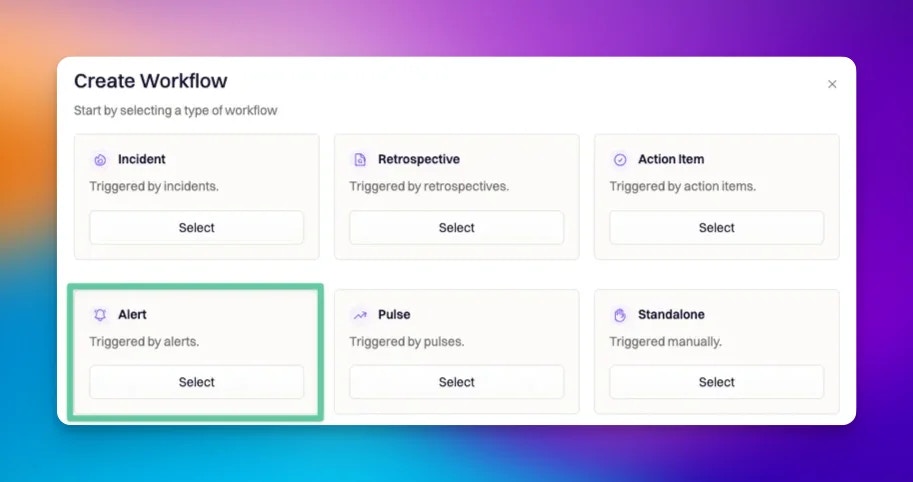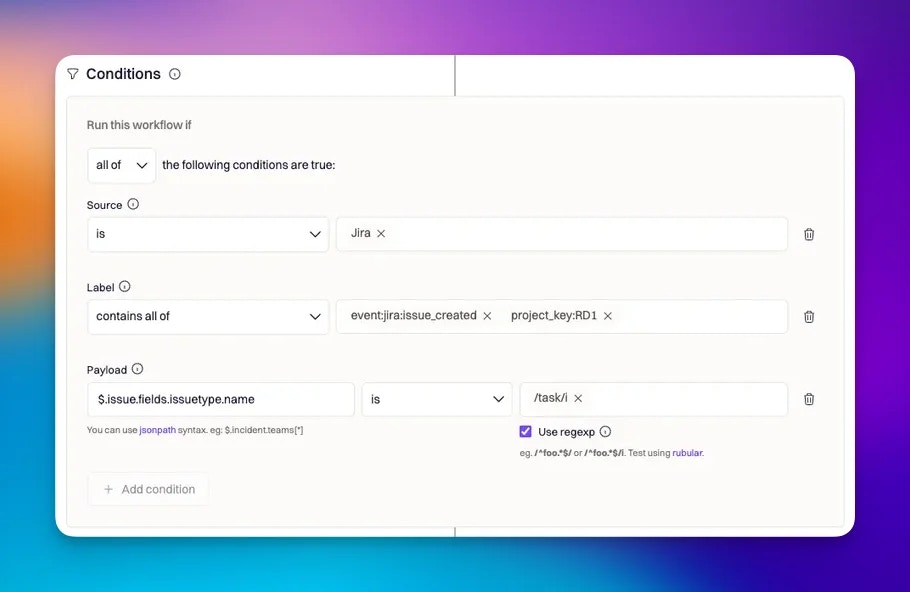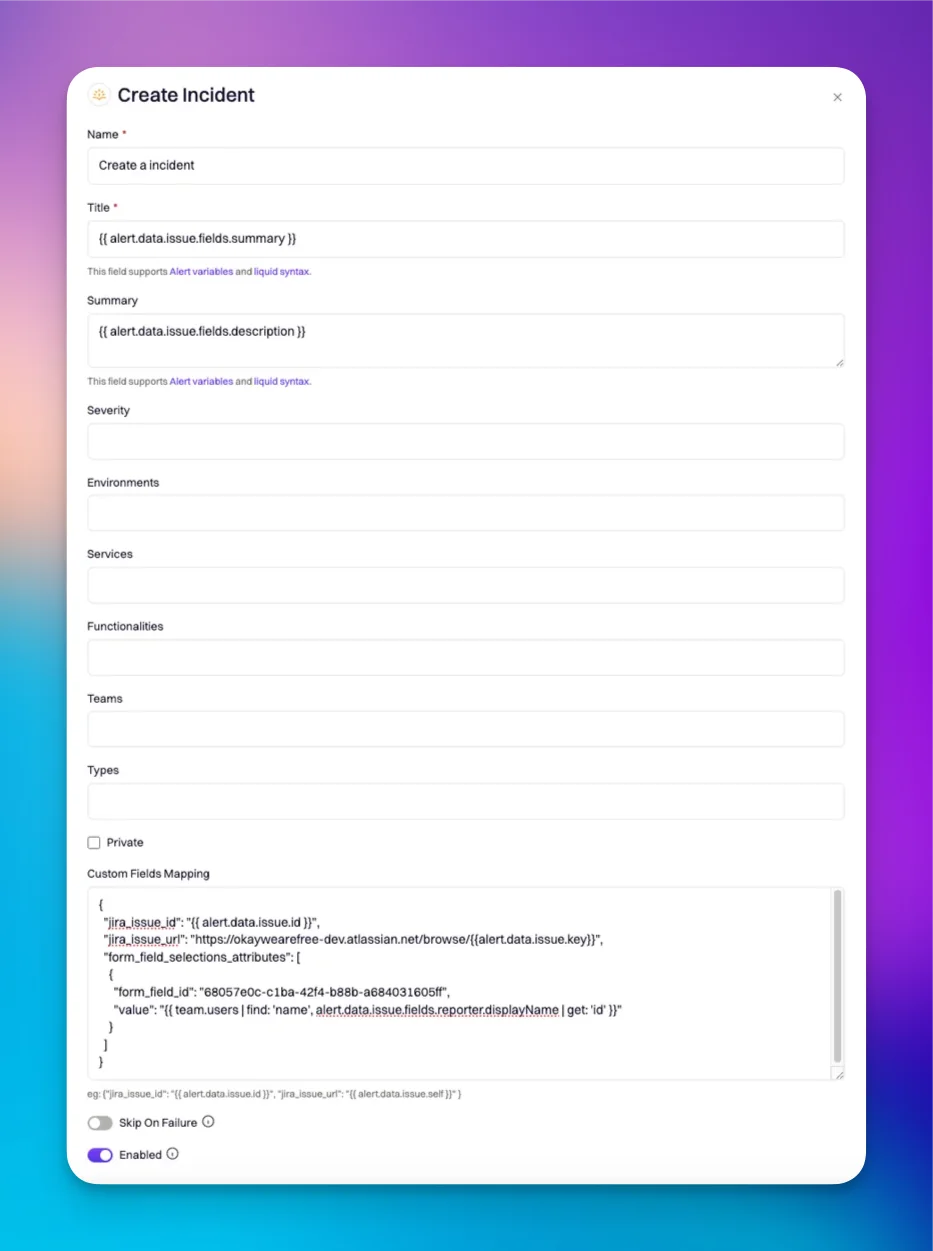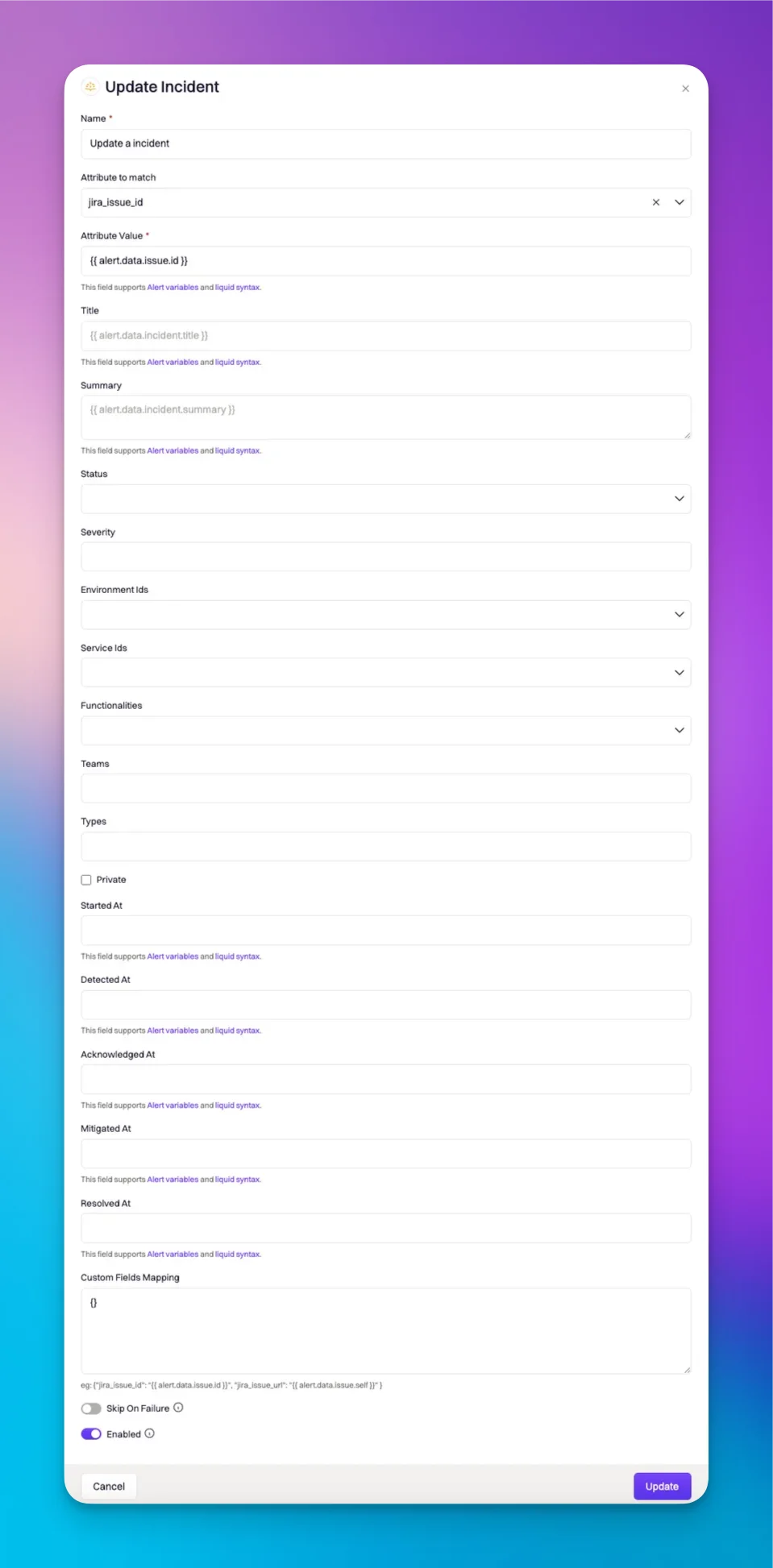This page details the configuration to have Rootly respond to Jira.
Listen for Jira Events
In order to respond to Jira events, you’ll need to set up a webhook in Jira so your Rootly platform can receive the events.Workflow Configurations
Select workflow type. Since Jira events will be created into Rootly asalerts, we will need to use an Alert workflow type.

Alert Created will be the only option to select here. This means the workflow will initialize whenever a new alert is created in Rootly.

- The alert
sourceis fromJira - The alert
labels:- Option 1:
contains all ofthe followinglabels(this is if you want to respond to a new Jira issue being created)event:jira:issue_createdproject_key:RD1(this label is optional - only include this if you want to respond to issues from a specific Jira project)
- Option 2:
contains all ofthe followinglabels(this is if you want to respond to an existing Jira issue being updated)event:jira:issue_updatedproject_key:RD1(this label is optional - only include this if you want to respond to issues from a specific Jira project)
- Option 1:
- The alert
payloadhas the$.object.specific_fieldequals to/specific_value/i- JSON path syntax is used to filter for a specific field from the alert payload (e.g. $.issue.fields.issuetype.name). You can preview your syntax on JSON Path Explorer.
- Ruby regular expression can be used to specify what value to match to. You can test your regexp on this Rubular tool.
Payload.
We will be exploring the possibility of supporting filtering by multiple payload fields in the future.

Create Incident
The Create Incident action is used to declare an incident in Rootly. Since this action will be referencing alert data, the dynamic fields will be{{ alert.properties }}.
Rootly does NOT automatically link alerts to the incident. You’ll need to include the following custom mapping in order to link the Jira ticket to the newly declared Rootly incident.

Update Incident
The Update Incident action is used to update an existing incident in Rootly. Ensure that you set Attribute to Match field tojira_issue_id and Attribute Value to {{ alert.data.issue.id }}. These fields are required for Rootly to know which incident to update.

Custom Fields Mapping
If you require more dynamic mapping of Rootly incident properties, you can input the following syntax into theCustom Fields Mapping field.
Dynamically set Rootly incident severity.
Debugging
Below are common errors you might run into during your configuration process. To view the error response, you can locate the specific workflow you’re trying to debug, select … > View Runs > View.| Error | Comment |
|---|---|
unknown attribute 'incident_property' for Incident. | Reason for error… This means the specified incident property you’re trying to set is not an attribute you can set or the syntax is incorrect. How to fix… Ensure that the field you’re attempting to set is enabled to be set via workflow and that your syntax is correct. |
unexpected token at '{ "incident_property": }' | Reason for error… Your custom mapping syntax is incorrect. How to fix… Correct your mapping syntax. |